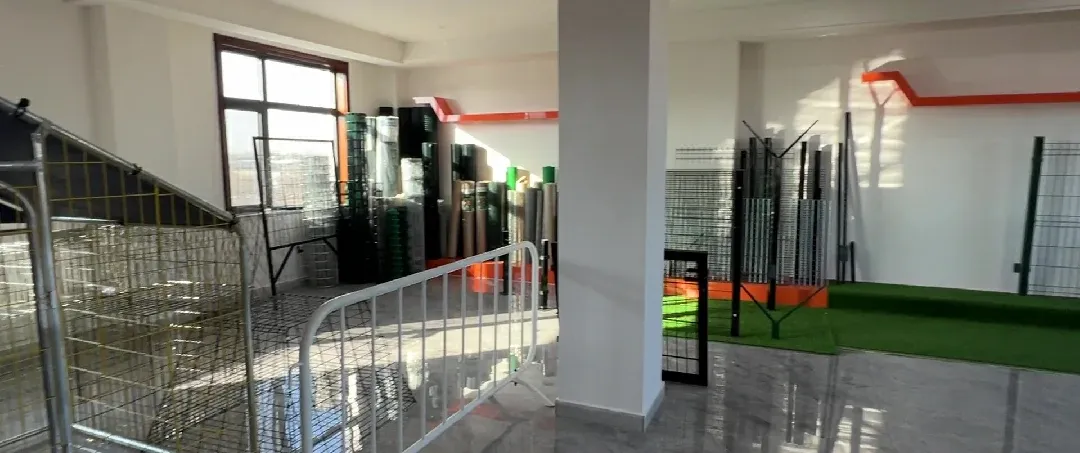Understanding the Benefits and Applications of 16 Gauge Wire Mesh for Various Projects
Understanding 16 Gauge Wire Mesh Characteristics and Applications
Wire mesh is an incredibly versatile material that finds applications in various industries, from construction to agriculture to manufacturing. Among the many types of wire mesh available, 16 gauge wire mesh is particularly noteworthy due to its balance between strength, weight, and flexibility. This article aims to explore the characteristics, uses, and benefits of 16 gauge wire mesh.
What Is 16 Gauge Wire Mesh?
The term gauge in wire mesh refers to the thickness of the wire used to create the mesh. In the U.S., the wire gauge system is used, where a lower number indicates a thicker wire. Therefore, 16 gauge wire is thicker than 18 gauge but thinner than 14 gauge. Typically, 16 gauge wire has a diameter of approximately 0.0625 inches (1.59 mm), making it sturdy yet manageable for various applications.
Characteristics of 16 Gauge Wire Mesh
1. Strength and Durability One of the most significant advantages of 16 gauge wire mesh is its exceptional strength. It can withstand considerable weight and pressure, making it suitable for high-demand applications. Unlike thinner gauges, which may bend or warp under strain, 16 gauge wire retains its shape and structural integrity.
2. Corrosion Resistance Many types of 16 gauge wire mesh are made from stainless steel or are coated with protective materials like galvanized zinc. This feature enhances their resistance to rust and corrosion, allowing them to be used in both indoor and outdoor settings without degradation over time.
3. Versatility 16 gauge wire mesh can be manufactured in various sizes and patterns, making it adaptable to different needs. It can be welded wire mesh, woven wire mesh, or even expanded metal, depending on the intended application.
4. Ease of Fabrication Despite its strength, 16 gauge wire is relatively easy to cut, bend, and shape. This malleability allows for custom projects, enabling builders and manufacturers to create specific designs as needed.
16 gauge wire mesh

Applications of 16 Gauge Wire Mesh
Given its strength and versatility, 16 gauge wire mesh is used in a wide range of applications
1. Construction In the construction industry, 16 gauge wire mesh is often used as reinforcement in concrete slabs, walls, and floors. It enhances the structural integrity and provides support, preventing cracking and shifting over time.
2. Fencing 16 gauge wire mesh is commonly employed in fencing solutions for both residential and commercial properties. Its sturdiness makes it effective for enclosing gardens, livestock areas, and secure perimeters.
3. Industrial Uses Manufacturers utilize 16 gauge wire mesh in various industrial applications, including screens for machines, protective enclosures, and even custom storage solutions. Its ability to withstand heavy loads makes it ideal for demanding environments.
4. Agriculture Farmers and agricultural workers use 16 gauge wire mesh for applications such as animal pens, garden trellises, and crop protection. Its durability and resistance to weather conditions make it a practical choice for outdoor use.
Conclusion
In summary, 16 gauge wire mesh is a robust and versatile material that serves numerous functions across different industries. Its strength, durability, and ease of fabrication make it an excellent choice for projects requiring resilience and reliability. Whether you are constructing a building, putting up a fence, or developing an industrial application, understanding the properties and benefits of 16 gauge wire mesh can significantly enhance the quality and longevity of your work. As it remains a staple in both industrial and commercial settings, knowing how to properly utilize this material can lead to successful project outcomes.
-
Space-Saving Chain Fence Hacks Vertical Gardening with Cyclone MeshNewsJul.16,2025
-
Innovations in Iron Nail Wire Production for Modern ConstructionNewsJul.16,2025
-
Creative Uses of Wire Netting Fence in Modern Landscape DesignNewsJul.16,2025
-
Barbed Wire Fence Innovations in Anti-Climb TechnologyNewsJul.16,2025
-
Architectural Uses of Umbrella Nails for Aesthetic Roof DesignsNewsJul.16,2025
-
Architectural Uses of Razor Barbed Wire in Secure Urban DesignNewsJul.16,2025




